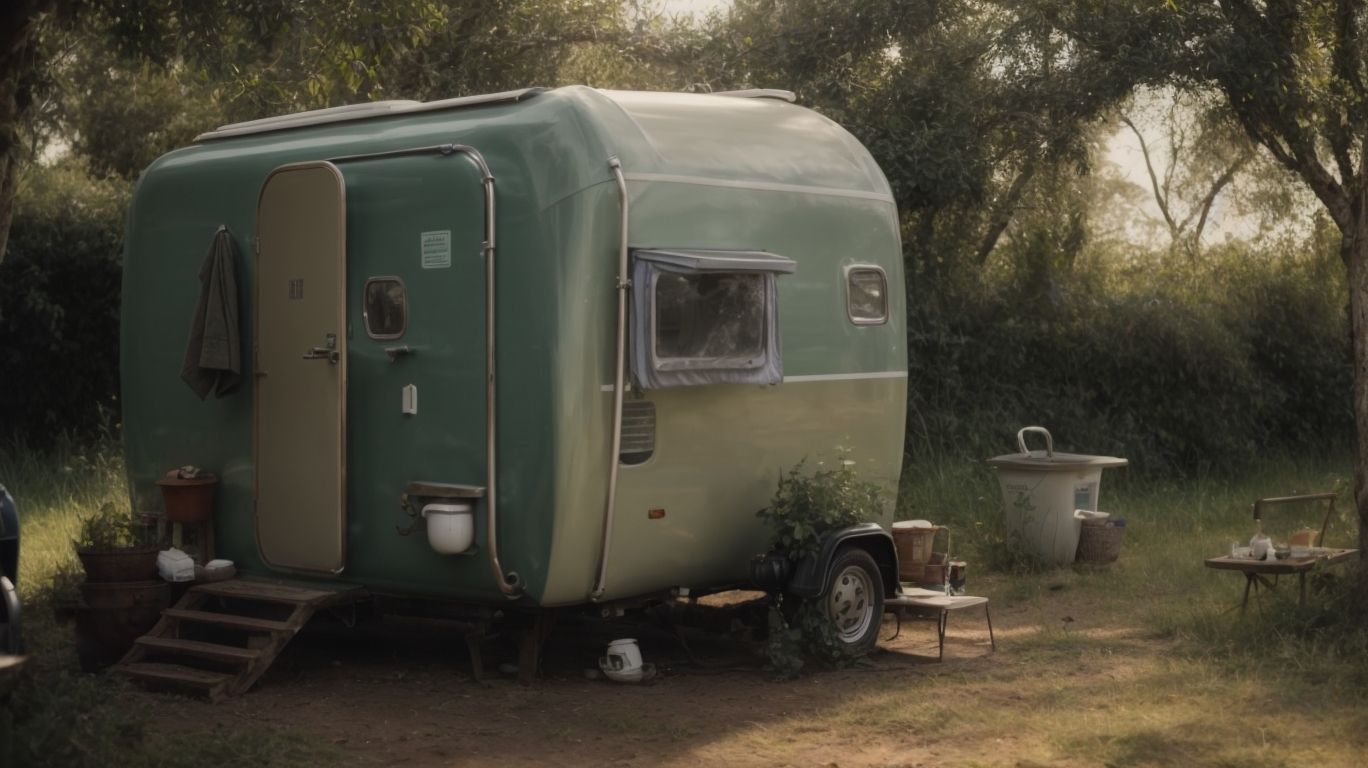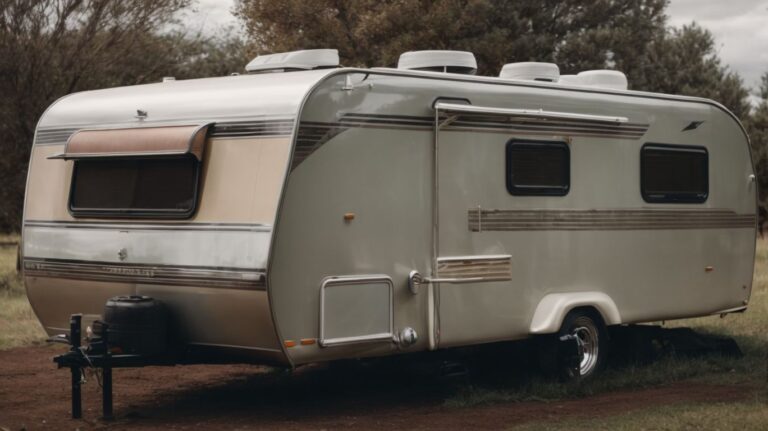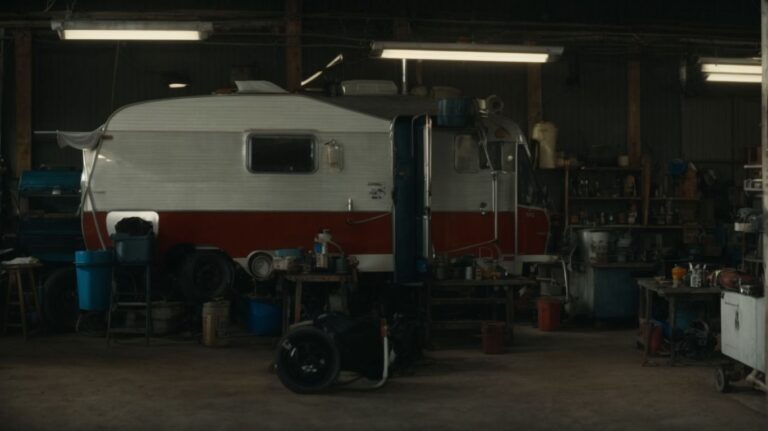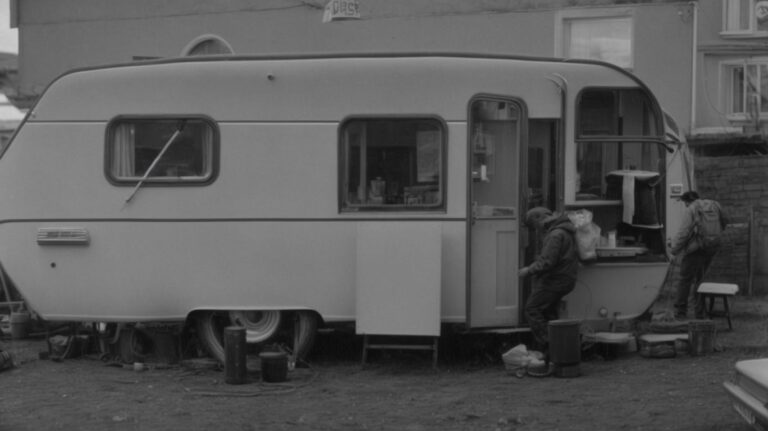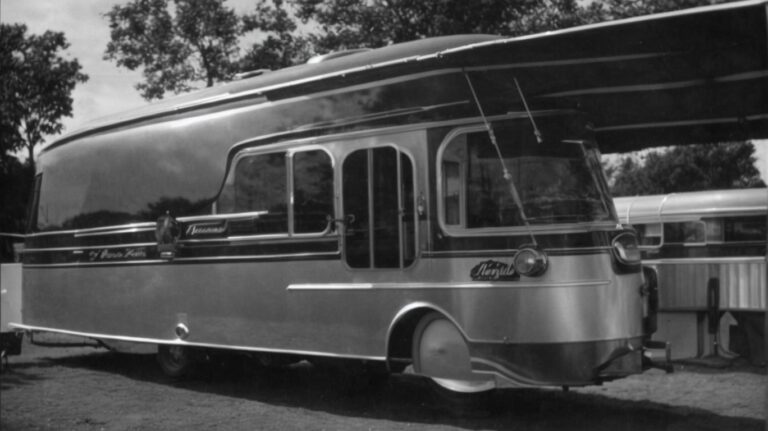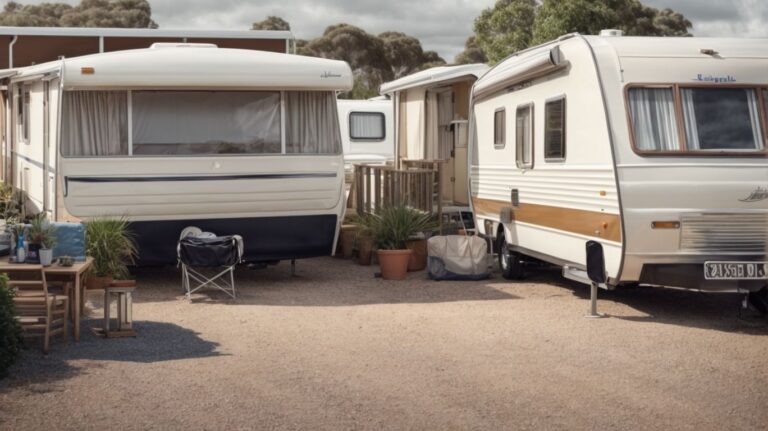Dealing with Unpleasant Odors: Why Does My Caravan Toilet Smell?
Do you dread using your caravan toilet because of that unpleasant odor that just won’t go away? If so, you’re not alone.
We’ll explore the common reasons why your caravan toilet may be emitting foul smells, including a lack of ventilation, waste build-up, and leaks in the system.
Discover practical tips on how to prevent and eliminate these odors, as well as debunk some common misconceptions about caravan toilet smells.
If you’re tired of holding your breath every time you use the toilet, keep reading to find out how you can enjoy a fresher, odor-free experience on your next caravan trip.
Key Takeaways:
Why Does My Caravan Toilet Smell?
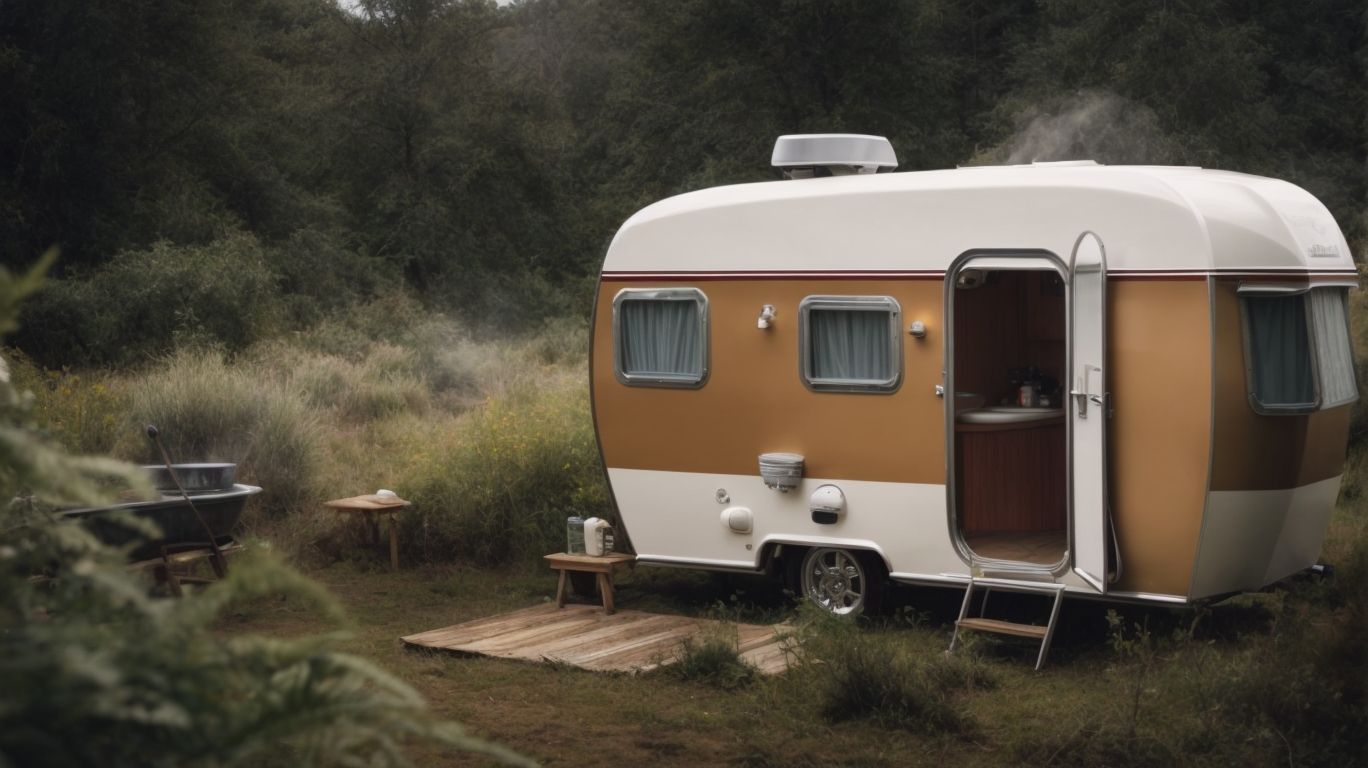
Credits: Motorcaravanning.Com – Alexander Miller
The unpleasant odor emanating from your caravan toilet can be a vexing issue for many RV enthusiasts. Understanding the root causes behind why your caravan toilet smells is crucial to addressing and eliminating this problem effectively.
Motion Activated RV Step Lights, 10 LED Battery Operated Motorhome Motion Sensor led Light Strip, Magnetic Night Light Bar for Motorhome Travel,Travel Trailers, Camper (2 Pack)
- 【Infrared Induction Motion Detection】Motion sensor light on the PIR sensor can detect human movement, 10 feet once your approach is detected, the rv step lights will automatically turn on in the dark, in the absence of detected motion or other light sources, 18 seconds after the automatic shutdown, a large degree of power savings and improved durability.
Camco TST MAX RV Toilet Treatment Drop-INs - Control Unwanted Odors & Break Down Waste and Tissue - Safe Septic Tank Treatment - Orange Scent, 30-Pack (41183)
- Toilet Deodorizer With Reactive Odor-Eliminating Technology: Experience a powerful RV odor eliminator that stops RV black tank odors for up to 7 days. Just (1) toilet drop in treats camper toilets with up to a 40-gallon tank.
THANSTAR Collapsible Dish Drying Rack Portable Dinnerware Drainer Organizer for Kitchen RV Campers Travel Trailer Space Saving Kitchen Storage Tray
- 【Food Grade Material】Made from eco-friendly PP+TPR material that is BPA Free and Food-Grade. The flexible material allows the dish strainers for kitchen counter to collapse flat for easy space-saving and storage, making the most of your kitchen countertop.
Camco RhinoFLEX 20-Ft RV Sewer Hose Kit - Features Clear Elbow Fitting w/Removable 4-in-1 Adapter - Connects to 3” Slip or 3”/3.5”/4” NPT Threaded Sewer Connection (39742)
- Superior RV Tank Dumping: Streamline RV holding tank dumping with Camco’s RhinoFLEX 20' Camper Sewer Hose Kit. Built tough & flexible, this all-inclusive RV septic hose system provides simple & effective tank dumping on your camping adventures.
Camco Tastepure RV Water Filter - New & Advanced RV Inline Water Filter with Flexible Hose Protector - GAC & KDF Water Filter - Made in USA - Camping Essentials for Fresh Drinking Water (40043)
- Advanced 6-Step Filtration Technology: Experience the extraordinary power of Hex-Flow Technology & its remarkable 6-step filtration process. Every layer works together to provide you with water that is exceptionally clean.





One common reason for RV toilet odors is inadequate ventilation. Poor ventilation can lead to stagnant air in the system, causing foul odors to linger. Waste accumulation in the holding tank can also contribute to unpleasant smells. It is essential to regularly empty and clean the tank to prevent this buildup. System damage, such as leaks or faulty seals, can further exacerbate odor issues. Proper maintenance of your RV toilet system, including checking for leaks and ensuring seals are intact, is key to keeping odors at bay.
What Causes Unpleasant Odors in Caravan Toilets?
Unpleasant odors in caravan toilets can stem from various sources within the RV’s sanitation system. Identifying the specific causes behind these foul smells is essential in devising effective solutions to combat and prevent them from recurring.
Poor ventilation is a common culprit when it comes to unpleasant odors in RV toilets. Inadequate airflow can lead to a buildup of stagnant air in the bathroom area, exacerbating the smell. Waste buildup in the toilet holding tank can release strong odors, especially in warmer temperatures. Ensuring regular emptying and proper maintenance of the tank can significantly reduce these odors.
Lack of Ventilation
A lack of proper ventilation in your RV’s toilet system can lead to the accumulation of foul odors within the confined space of the vehicle. Ensuring adequate airflow through the vent pipe and rooftop vent is essential in preventing these unpleasant smells from permeating your camper.
One of the crucial components for effective odor control in your RV is the vent pipe, which allows for the release of gasses and odors outside. It is vital to regularly inspect and clean the vent pipe to ensure unrestricted airflow.
Regular maintenance of the rooftop vent is equally important. This component serves as the outlet for odors and moisture, so keeping it clear of obstructions like debris or nesting animals is essential. Implementing these maintenance routines will help you enjoy a fresh and pleasant environment inside your RV.
Build-up of Waste and Bacteria
The accumulation of waste and bacteria within the black tank of your RV can create a breeding ground for unpleasant odors that seep into your camper’s living spaces. Regular cleaning and proper waste management are essential in preventing these odor-causing build-ups.
One of the key practices to maintain black tank and holding tank cleanliness is to ensure that only appropriate materials are disposed of in these waste systems. Avoid flushing items such as grease, paper towels, feminine hygiene products, or chemicals down the toilet, as these can lead to clogs and bacterial growth.
In terms of emptying the tanks, always make sure to use designated dump stations and follow the correct procedures. Thoroughly flushing the tanks after each use with an adequate amount of water helps in preventing solid waste from sticking to the tank walls, reducing the chances of odor formation.
Leaks or Damage to the Toilet System
Leaks or damage to the RV toilet system, including issues with the toilet seal, clogs, or plumbing leaks, can contribute to the release of noxious odors in your camper. Addressing these toilet system malfunctions promptly is crucial in eliminating foul smells and maintaining a pleasant indoor environment.





One of the common causes of odors in RV toilets is a damaged or loose toilet seal. When the seal is compromised, it fails to contain odors effectively, leading to unpleasant smells in the living space.
In addition, clogs in the toilet system can also result in stagnant water and sewage, creating a breeding ground for foul odors. Plumbing leaks further exacerbate the situation, allowing sewage gases to escape and permeate the RV.
”
How to Prevent Unpleasant Odors in Caravan Toilets?
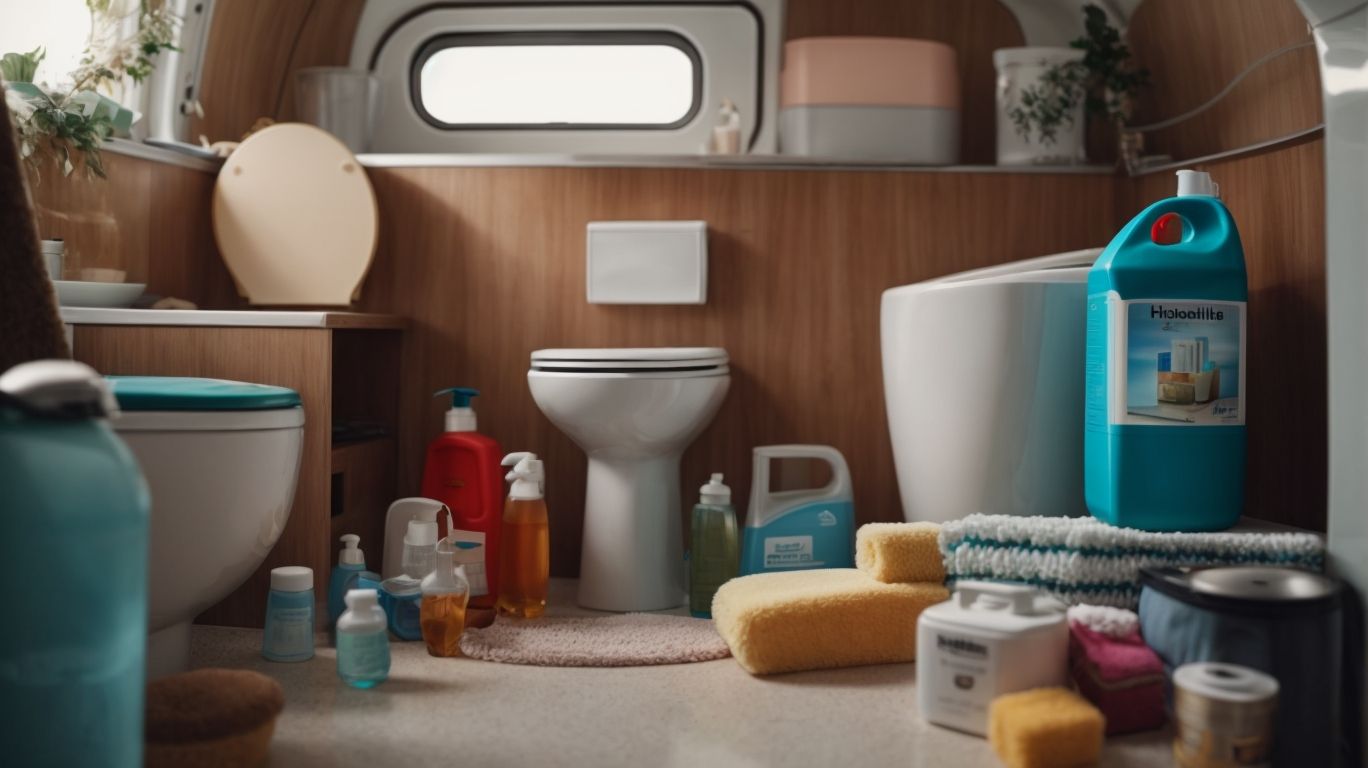
Credits: Motorcaravanning.Com – Alan Taylor
Taking proactive measures to prevent unpleasant odors in caravan toilets is key to ensuring a fresh and comfortable RV experience. Implementing proper sanitation practices, utilizing effective chemicals, and maintaining essential toilet components can help mitigate and avoid toilet odor issues.
One effective technique is to regularly add deodorizing chemicals to the toilet tank. These specially formulated chemicals break down waste and neutralize odors, keeping the air in your RV restroom fresh. Make it a habit to inspect and maintain the toilet flap to ensure a proper seal, preventing odors from escaping into the living space. Routine cleaning of the toilet with RV-safe cleaners is crucial in preventing build-up and bacterial growth that can cause persistent odors. By integrating these strategies into your RV maintenance routine, you can enjoy a pleasant and odor-free travel experience.
Proper Ventilation
Ensuring proper ventilation in your caravan toilet system is crucial for preventing the build-up of unpleasant odors and maintaining a fresh interior atmosphere. Regularly inspecting and maintaining the vent pipe and rooftop vent can significantly reduce the risk of foul smells in your camper.
One essential tip for keeping your RV toilet odor-free is to check the vent pipe for any blockages or obstructions regularly. A clear vent pipe allows odors to escape efficiently. Inspect the rooftop vent for damage or debris accumulation that could impede proper airflow.





If you are experiencing persistent odors, ensure that the vent pipe is correctly positioned and free from any bends or kinks that may restrict air circulation. Installing a vent cover can also help prevent debris from entering the system and affecting ventilation.
Regular Cleaning and Maintenance
Regular cleaning and maintenance of your camper’s toilet system are essential practices for odor prevention and overall sanitation. Establishing a cleaning routine, using appropriate chemicals, and ensuring proper water usage can help keep your RV toilet smelling fresh and hygienic.
In terms of selecting cleaning agents for your RV toilet, opt for products specifically designed for sanitation purposes to ensure effective cleaning without damaging the plumbing system. Avoid using harsh chemicals that can corrode the seals or adversely affect the tank’s components.
Be mindful of the amount of water you flush down the toilet to prevent potential clogs and facilitate proper waste breakdown. Conserving water is not only eco-friendly but also helps maintain the balance within the septic tank system.
Regularly inspecting all connections, valves, and seals is crucial to address any leaks promptly and prevent water damage or foul odors inside the RV.
Use of Chemicals and Deodorizers
Utilizing suitable chemicals and deodorizers in your RV toilet system can help neutralize odors and maintain a pleasant indoor environment. Choosing the right products, such as odor eliminators and roof vent treatments, can significantly enhance the odor control capabilities of your camper’s toilet.
In terms of effectively addressing RV toilet odors, it’s crucial to understand how these products work in harmony with your plumbing system. Chemicals designed for RV toilets are formulated to break down waste and eliminate odors at the source, ensuring a fresh-smelling environment throughout your travels.
Odor eliminators are particularly handy for those stubborn smells that seem to linger despite regular cleaning. Consider a product that offers long-lasting protection and is compatible with different toilet systems to address a variety of odor concerns.
How to Get Rid of Unpleasant Odors in Caravan Toilets?
Addressing and eliminating unpleasant odors in caravan toilets requires a systematic approach to tackle the root causes of the smell. By following a series of steps that involve waste tank maintenance, natural deodorizer usage, and thorough system checks, you can effectively rid your RV toilet of foul smells.
Frequent waste tank cleaning is crucial in preventing odors from lingering in your RV bathroom. Start by emptying and thoroughly rinsing the waste tank regularly to avoid buildup. Consider using specialized RV toilet cleaners that break down waste and neutralize odors effectively. Proper ventilation is also essential to prevent moisture buildup that can contribute to foul smells. Incorporating natural deodorizers like baking soda or essential oils can help maintain a fresh scent in your RV toilet.





Empty and Clean the Waste Tank
Emptying and thoroughly cleaning the waste tank of your RV toilet is a fundamental step in combating unpleasant odors and maintaining proper sanitation. Regularly emptying the tank, inspecting the flap seal, and flushing with clean water can significantly reduce odor build-up in your camper.
When beginning the process of emptying the waste tank, start by making sure your RV is parked in an appropriate location for waste disposal. Most campgrounds and RV parks provide designated dumping stations for this purpose. Before releasing the black water tank, ensure you’ve first emptied the gray water tank, as the residual gray water can help to flush out the black tank more effectively.
After dumping the contents, it’s essential to thoroughly flush the tank. Utilize a specialized wand or tank rinser with a built-in valve to direct high-pressure water into the tank, breaking down any remaining waste and residue clinging to the walls. Repeat this process several times until the water runs clear.
Use Natural Deodorizers
Opting for natural deodorizers in your RV toilet system can offer an eco-friendly and effective solution for combating odors. Utilizing ingredients like baking soda, vinegar, or essential oils can help neutralize smells and refresh your camper’s bathroom environment without harsh chemicals.
One popular homemade deodorizer recipe involves mixing equal parts of baking soda and essential oils such as lavender or eucalyptus. This blend not only masks odors effectively but also adds a pleasant scent to your RV bathroom.
Incorporating vinegar into your deodorizing routine can help disinfect and eliminate bacteria that contribute to foul smells. Simply dilute vinegar with water and spray the solution in your toilet area to prevent unpleasant odors.
Regularly maintaining your RV’s toilet system with natural deodorizers not only keeps it smelling fresh but also avoids the potential health risks associated with synthetic fragrances and chemicals commonly found in commercial deodorizers.
Check for Leaks and Repairs
Inspecting your RV toilet system for leaks and necessary repairs is essential in addressing persistent odors and maintaining a functional sanitation setup. Identifying and fixing issues such as clogs, seal leaks, or damaged components can help restore your camper’s bathroom to a fresh and odor-free state.
Regularly conducting leak checks on your RV toilet can go a long way in preventing potential water damage and ensuring a pleasant travel experience. One important step is to inspect the toilet’s connections, hoses, and seals for any signs of leakage.
If you notice any leaks, promptly address them to avoid mold growth and costly repairs. Replace worn-out seals, tighten loose connections, and consider using RV-specific sealant for lasting protection.





- For clogs, try using a specialized RV-friendly toilet auger to clear blockages without causing damage to the system.
- Investing in biodegradable toilet paper can help prevent future clogging issues.
Are There Any Health Risks Associated with Unpleasant Odors in Caravan Toilets?
Unpleasant odors emanating from caravan toilets not only pose a nuisance but can also harbor potential health risks for RV occupants. Exposure to foul odors from the black tank or sewage system can lead to respiratory issues, bacterial infections, and other health complications, underscoring the importance of addressing and eliminating these odor sources promptly.
One of the main health hazards associated with RV toilet odors is the exposure to sewage fumes and harmful bacteria, which can have detrimental effects on the well-being of those traveling in the vehicle. Inhaling these noxious fumes can irritate the respiratory system, leading to coughing, shortness of breath, and even exacerbating pre-existing conditions like asthma.
The presence of bacteria in sewage can pose a significant risk of infection if proper sanitation measures are not in place. E.coli, Salmonella, and other pathogens commonly found in sewage can cause gastrointestinal illnesses, urinary tract infections, and skin problems when individuals come into contact with contaminated surfaces or inhale aerosolized particles.
What Are Some Common Misconceptions About Caravan Toilet Odors?
Misconceptions surrounding caravan toilet odors can perpetuate misunderstandings about proper sanitation practices and odor control strategies in RVs.
Debunking common myths related to chemical usage, cleanliness standards, and odor expectations can help RV owners and campers adopt effective and accurate approaches to managing and preventing toilet smells. One prevalent misconception is the belief that overpowering chemical fragrances eliminate odors completely, whereas these may only mask the underlying smells and create a synthetic scent mix. Instead, focusing on proper waste disposal, regular tank cleanings, and utilizing eco-friendly odor control products can significantly reduce unpleasant odors and promote a healthier RV environment.
Using More Chemicals Will Eliminate Odors
The misconception that using an excess of chemicals will automatically eliminate odors in RV toilets is a prevalent but inaccurate belief among some campers. In reality, an overabundance of chemicals can disrupt the natural balance of the sewage system and lead to persistent odor issues, emphasizing the importance of chemical moderation and proper usage.
Instead of relying solely on chemicals, campers can adopt a more sustainable approach to odor control by incorporating biodegradable products or natural remedies.
Essential oils, such as lavender or tea tree oil, can be effectively used to mask unpleasant odors without harming the environment or compromising the sewage system. Regular maintenance and proper waste disposal practices play a crucial role in preventing odor buildup and ensuring the longevity of the RV toilet system.
Only Dirty Toilets Smell Bad
Contrary to the misconception that only visibly dirty toilets emit unpleasant odors, the reality is that even well-maintained RV toilets can develop smell issues due to underlying factors such as waste tank contamination or ventilation problems. Understanding that cleanliness alone may not guarantee odor-free toilets is essential in addressing odor concerns effectively.
Regular maintenance of RV toilets goes beyond surface cleaning. Preventing odors requires a holistic approach involving proper waste disposal practices, vent system checks, and using specialized deodorizing products.





- Regularly emptying and rinsing the waste tank can help prevent the build-up of odor-causing bacteria.
- Checking and maintaining the ventilation system ensures proper airflow, reducing stagnant air that can contribute to foul smells.
- Choosing environmentally friendly deodorizers can break down waste more effectively, minimizing odor formation.
By addressing these factors comprehensively, RV owners can enjoy a fresh and comfortable bathroom environment while on the road.”
It’s Normal for Caravan Toilets to Smell
The belief that it’s normal for caravan toilets to emit odors is a misconception that can lead to complacency and neglect in odor management practices. While occasional odors may occur, persistent or strong smells signal underlying issues that require attention and corrective actions to maintain a hygienic and pleasant RV environment.
It is crucial for caravan owners to adopt a proactive approach towards odor control rather than accepting unpleasant odors as an inevitable part of RV living. By identifying the root causes of odors, such as inadequate ventilation, leakage, or improper waste disposal, individuals can effectively tackle the problem at its source. Conducting regular inspections of toilet seals, vents, and plumbing systems can help in detecting and addressing potential odor sources before they escalate.
Frequently Asked Questions
What could be causing my caravan toilet to smell unpleasant?
There are several potential reasons for a smelly caravan toilet, such as buildup of waste, clogged vents, or a damaged seal.
How can I prevent unpleasant odors in my caravan toilet?
Regularly cleaning and maintaining your toilet, using proper waste disposal methods, and ensuring proper ventilation can help prevent odors from occurring.
What should I do if my caravan toilet starts to smell?
First, check for any obvious issues such as clogs or leaks. If the problem persists, try using specialized deodorizers or consult a professional for a thorough cleaning.
Can a damaged seal be the cause of unpleasant odors in my caravan toilet?
Yes, a damaged seal can cause odors to escape from the toilet bowl. It is important to regularly check and replace any damaged seals to prevent this issue.
Are there any natural remedies for eliminating unpleasant odors in my caravan toilet?
Yes, some natural remedies include using baking soda, vinegar, or essential oils to neutralize odors. However, it is important to address the root cause of the odor for a more long-term solution.
How can I maintain proper ventilation in my caravan toilet?
Make sure the toilet vent is not blocked and use a fan or open windows to improve air circulation. Regularly emptying and cleaning the waste tank can also help prevent odors from building up.






